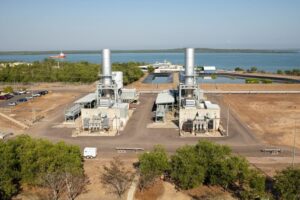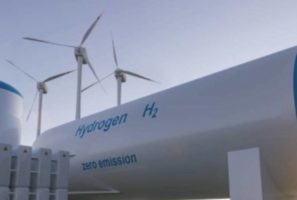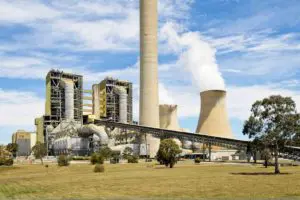A global rush to build new fossil gas infrastructure is putting the world’s climate – and almost US$500 billion in investments at risk – and countries like Australia are part of the problem.
The threat has been detailed in a new study, published by the Global Energy Monitor, that finds the US$485.8 billion (A$675 billion) in planned expenditure on new gas infrastructure, including pipelines, is at risk of becoming stranded assets.
According to the report, 70,900 kilometres of new gas pipelines are already under construction, with a further 122,500 kilometres of additional gas pipelines undergoing pre-construction planning.
The Global Energy Monitor said that for such an expansion of the world’s fossil gas infrastructure to be viable, it would require the ongoing use of the fossil fuel well beyond limits consistent with keeping global warming to within safer levels.
The report highlights how the extraordinary level of planned expenditure on new gas projects flies in the face of recent analysis produced by the International Energy Agency, which concluded that the development of new gas projects needed to cease if the world is to reach zero net emissions by 2050.
“The world is at an inflection point, where it can hasten the transition to renewables or further entrench itself in fossil fuels,” the report says.
“It is choosing the latter, with 194,400 km of new gas pipelines in development representing an expenditure of US$485.8 billion on assets counterproductive to the 1.5°C Paris goal and a green transition.”
“The scale and lifetime of this intended expansion stands in misguided defiance of the IEA’s net-zero pathway, which stresses no new investment in fossil fuel supply projects,” the report adds.
The report was particularly scathing of Australia’s “gas-led recovery” plan – which includes proposals for 12,200 kilometres of new gas pipelines and could create a stranded asset risk worth as much as US$18.6 billion (A$25.9 billion).
Global Energy Monitor also criticised the Morrison government’s refusal to adopt stronger climate change policies, such as its refusal to join a global pledge to reduce methane emissions during last year’s international climate talks in Glasgow. Methane emissions are mostly released during the extraction and processing of fossil gas.
The report pointed to the Morrison government’s efforts to open up new gas basins, such as the Beetaloo, Galilee, Surat and North Bowen regions, as well as Woodside’s massive Pluto LNG expansion, as underpinning additional investment in new pipelines.
“There are also substantial capacity expansions planned along the existing national network, largely part of a recent national plan to expand gas infrastructure in the country to meet rising domestic and export demands,” the report says of Australia.
“This expansion highlights the Australian government’s unbridled enthusiasm to encourage private-sector midstream gas development while failing to establish more stringent carbon mitigation goals within the next decade.”
“Despite pressure, the government has refused to strengthen its near-term emissions commitments by 2030, currently a 26-28 per cent reduction relative to 2005, the lowest amongst wealthy G20 nations.”
“This directly serves the “gas-fired recovery” announced in 2020 that will drive major gas infrastructure expansion in the next decade,” the report adds.
Australia ranked fourth amongst countries for the amount of new gas pipelines either proposed or currently under construction, behind only China, India and Russia.
Global Energy Monitor noted that last year saw an overall decline in new gas pipeline construction, but this was attributed to the ongoing impacts of the Covid-19 pandemic rather than any reduction in ambition amongst gas producers to build more infrastructure.
In 2021, the completion of new gas pipelines fell to its lowest level in the last 25-years, with just 6,500 kilometres of new pipelines commissioned. But this is expected to be eclipsed by new pipeline completions this year, with 36,800 kilometres of pipelines already under construction.
“A slowdown in gas pipeline development in 2021 was unfortunately more about Covid than a recognition that gas is contributing to the climate crisis,” Global Energy Monitor research analyst Baird Langenbrunner said.
“Looking ahead, the fact that nearly half-a-trillion dollars of gas pipelines are in development make no sense economically as many of these projects will become stranded assets as the world transitions to renewables.”









